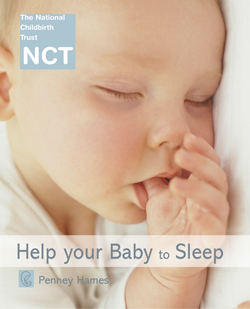Читать книгу Help Your Baby to Sleep - Penney Hames - Страница 37
Safe Sleeping
ОглавлениеThe possibility of cot death worries many of us. But there are things that research has shown help to prevent it. Making sure we follow the recommended advice may help to put our minds at rest.
Many parents buy a baby monitor so that they can hear when their baby cries. These are a good idea, especially when your baby sleeps out of ear-shot. But there’s another sort of device called a ‘breathing monitor’ which is designed to sound only when your baby stops breathing. The Foundation for the Study of Infant Deaths recommends that you only buy one of these breathing monitors if your baby has problems breathing. Talk to your doctor or health visitor before buying this type of monitor. In tests, parents found that breathing monitors tended to sound when there was no problem with the baby – making them more anxious rather than less. Parents also tend to check their baby less often when there is an alarm in the room, which means that they may not pick up the other predictor of cot death – that their baby is too hot.
Babies of less than four months old are less able to adapt to swings in temperature than the rest of us and need help to keep a steady temperature. Overheating can lead to cot death. So don’t use any bedclothes that make it difficult to regulate your baby’s body heat. Duvets and lambswool fleeces are out, but sheets and blankets are in. Babies regulate their temperature by losing heat from their heads so don’t dress him in a hat to sleep. Your baby can also wriggle his head under a cot bumper, soft toy or pillow, so it’s best not to put any of these into the cot until he is one year old.
‘We worried about having the duvet on our bed and that she would overheat but we’d move the pillow out of the bed and there would be an air space between us.’
Sally, mother of Laura and Annie
Other co-sleeping parents regulate their babies’ temperature by swopping their duvets for sheets and blankets and dressing their baby in fewer clothes.
The Foundation for the Study of Infant Deaths recommends:
• Laying your baby on his back to sleep (he is not more likely to choke).
• Don’t allow anyone to smoke near your baby or in the house.
• Keep your baby’s room at about 18°C/64°F.
• Cover him with a sheet and cellular blankets, rather than a duvet. (A folded blanket counts as two.)
• Don’t assume that, because it’s cold outside, your baby will be cold; judge it by feeling him.
• Check your baby by putting your hand inside his babygro and feeling his stomach. If he’s warm, that’s fine. Too cold and add another blanket, too hot and you need to remove one. (Don’t worry if his hands and feet are cold – this is normal.)
• Lie your baby with his feet at the end of the cot so he can’t wriggle down under the covers.
• If your baby seems unwell, seek medical advice early and quickly.
• Have your baby in a cot beside your own bed for the first six months.
If you are a smoker, have taken drugs or are drunk, you should not sleep with your baby in your bed because this increases the risk of cot death.
Cot death is rare, so don’t let it spoil those special first few months with your baby.
